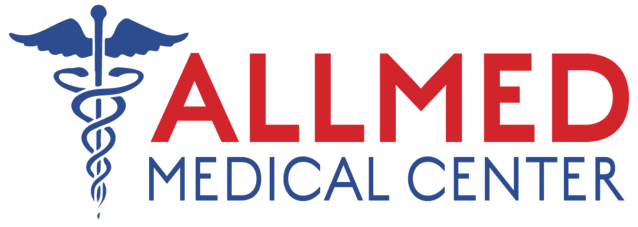Home Remedies and Treatments for Recurring Migraine and Headaches

Migraine is one of the most common reasons for head pain. According to Migraine Research and Foundation, migraine usually runs in families and may affect both adults and children.
Migraine headaches are more than just severe headaches. It is a neurological condition that includes other symptoms:
- Vomiting
- Nausea
- Shoulder and neck pain
- Sensitivity to smell, light, or sound
- Fatigue
There are available medications that can provide relief or prevent migraine episodes. However, some still prefer home remedies as a supplement or alternative treatment.
Lifestyle changes can also reduce the frequency and severity of migraine attacks.
Natural Remedies for Migraines
Although many medications exist for migraines, there are notable natural remedies for recurring migraines and headaches.
- Ginger
Ginger is a popular Asian plant used as herbal medicine in China for over two thousand years. It is also popular in Arabic and Indian medication.
Ginger is known for its medicinal properties to treat:
- Headaches
- Migraines
- Nausea
- Cold and cough symptoms
- Stomach pain
Studies show that ginger contains properties comparable to sumatriptan, a fundamental ingredient in migraine medications. That is why ginger brings relief to migraines.
Most people can tolerate the taste of ginger tea; however, do not take ginger supplements while taking drug thinners to avoid drug interactions.
- Lavender Oil
Lavender oil, known for its sweet-smelling properties, is also effective as one of the natural remedies for migraine. To use the lavender oil, breathe in the oil or apply it to your temples. Don't forget to dilute the oil properly since it can irritate the skin.
Do not take the oil orally since it can be toxic at a specific dosage.
- Add Magnesium to Your Diet
A lack of
magnesium in your diet can lead to headaches and migraine. Adding magnesium oxide to your diet can help in headaches. It also minimized the occurrence of hormonal headaches.
You can add magnesium to your diet by eating:
- Almonds
- Peanut butter
- Sunflower seeds
- Eggs
- Milk
- Oatmeal
- Cashews
- Keep Hydrated
One of the triggers of a migraine attack is dehydration. When you don't drink enough water, it may lead to sudden headaches and migraines. To prevent this, keep yourself hydrated with water, especially when exercising. Remember to add more water during summer.
- Sleep Well
Due to headaches, you may find it hard to get a good night's sleep. However, try to lay down and sleep when you have a migraine help reduce symptoms.
Here are some tips to make you have a good sleep:
- Schedule regular sleep hours. Go to bed and wake at the same time every day. It will help your body recognize a sleep pattern. Avoid taking naps longer than 30 minutes since this may interfere with your sleep at night.
- Relax at the end of the day. Avoid doing some heavy exercises during the night since it might interfere with your sleep. Instead, relax by listening to relaxing music, reading a book, or taking a warm bath.
- Reduce distractions. Avoid bringing work-related materials to your bed to give yourself some restful sleep.
- Avoid Food Triggers
Foods have a significant impact on the presence of migraine. When preparing your food, try to consider these:
- Minimize eating cheese products. Tyramine is an ingredient in cheese and can trigger a migraine attack. Cheese with high tyramine content is cheddar, parmesan, mozzarella, feta, and blue.
- Avoid foods that contain nitrates and nitrites. Nitrites and nitrates are chemicals in processed meats like bacon, ham, and hotdog. When eaten, these foods may induce swelling of the blood vessels, triggering a migraine attack.
- Minimize caffeine. Reduced intake of foods that contain caffeine like carbonated drinks and chocolates since they can trigger an attack.
- Apply Cold Compress
Apply a
cold compress to the head and neck area. The cold compress is one of the most effective headache remedies since it can reduce swelling and minimize nerve constriction of the blood vessels.
To make a cold compress, fill a waterproof bag with ice and wrap it in a cloth or towel. Then, apply the cold compress to the temples, head, and neck.
- Manage Stress
Stress is often felt when you are under pressure. You cannot avoid stress altogether, but you can control your reaction to stress to minimize your migraine.
- Manage your time. Have a to-do list daily, both at work and home. Do what you can while dividing the more extensive projects into smaller tasks.
- Take a break. If you feel overwhelmed at work or in your personal life, stop and slow down for a few minutes. Take a walk and breathe to renew your energy.
- Enjoy yourself. Do something that you enjoy every day, even for just fifteen minutes. It could be playing a game, reading a book, or having tea. Doing something that you want can make you feel relaxed.
- Relax. Deep breathing for at least ten minutes can help you relax for the day. It may help consciously relax the muscles, thus minimizing your migraine headaches.
Manage Your Migraines with AllMed Medical Center
Migraines can be debilitating at times. That is why it is crucial to find natural and safe migraine treatments that work for you. However, if these natural remedies are not enough, our trained clinicians and specialists at
AllMed Medical Center
are ready to help you. Call us at
1-833-255-6332 to book an appointment.
AllMed Medical CentersServing
Greater Sacramento
Allmed Medical Center | All Rights Reserved.









